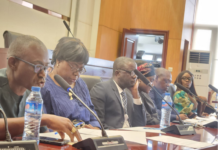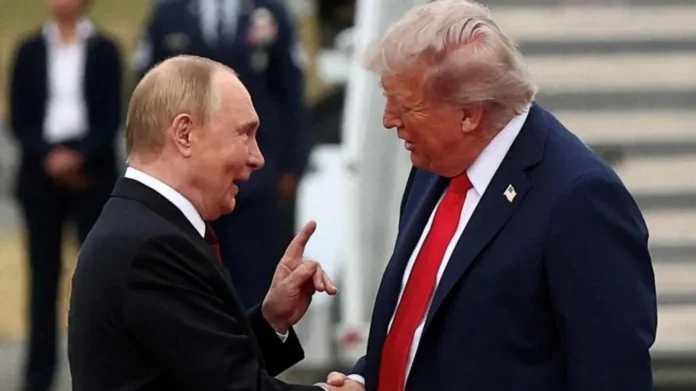There are “no plans” for US President Donald Trump to meet Russia’s Vladimir Putin “in the immediate future”, a White House official has stated.
Last Thursday Trump said he and the Russian president would hold talks in Budapest within two weeks to discuss the war in Ukraine.
A preparatory meeting between US Secretary of State Marco Rubio and his Russian counterpart Sergei Lavrov was due to be held this week – but the White House said the two had had a “productive” call and that a meeting was no longer “necessary”.
The White House did not share any more details on why the talks had been put on hold.
But key differences between US proposals and Russia’s preconditions for peace became increasingly clear this week, and appear to have dashed chances of a summit between the two presidents.
Trump had discussed a Budapest summit over the phone with Putin, a day before meeting Ukraine’s Volodymyr Zelensky in the White House.
Some reports suggested his talks with Zelensky had been a “shouting match”, with sources suggesting Trump had pushed him to give up large areas of territory in eastern regions of Donetsk and Luhansk, known as the Donbas, as part of a deal with Russia.
However, Zelensky has always said Ukraine cannot relinquish the parts of the Donbas it still holds, on the grounds that Russia could later use the area as a springboard for further attacks.
On Monday, Trump embraced a ceasefire proposal backed by Kyiv and European leaders to freeze the conflict on the current front line.
“Let it be cut the way it is,” he said. “I said: cut and stop at the battle line. Go home. Stop fighting, stop killing people.”
Russia has repeatedly pushed back against freezing the current line of contact.
Kremlin spokesperson Dmitry Peskov said the idea had been put to the Russians repeatedly but that “the consistency of Russia’s position doesn’t change” – referring to Moscow’s insistence on the complete withdrawal of Ukrainian troops from the embattled eastern regions.
Moscow was only interested in “long-term, sustainable peace”, Sergei Lavrov said on Tuesday, implying that freezing the front line would only amount to a temporary ceasefire























